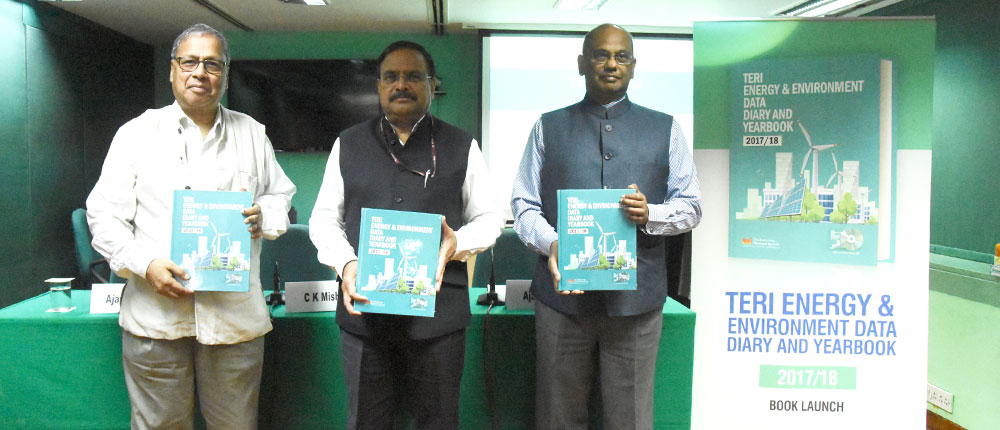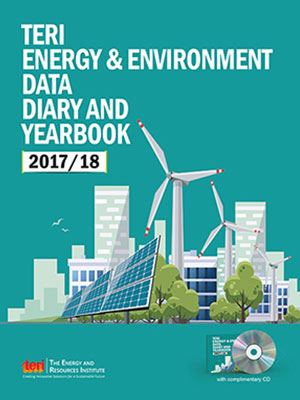Mr CK Mishra, Secretary, Ministry of Environment, Forests and Climate Change, gave the keynote address at the launch of TERI's annual data yearbook

Data are just summaries of thousands of stories – tell a few of those stories to help make the data meaningful
- Chip and Dan Heath
The 33rd edition of the TERI Energy Data Directory and Yearbook (TEDDY) was launched at TERI on April 3. In his keynote address on the occasion, C K Mishra, Secretary, Ministry of Environment, Forest and Climate Change, Government of India, recognised the significance of data but added that it only becomes relevant when collected for a purpose and it is important for data to have a storyline.
TEDDY, which was launched in 1986, is TERI's annual flagship publication that provides a compilation of energy and environment-related data from various credible sources. It also provides a review of government policies, programmes and initiatives that have implications for environment and energy sectors of the Indian economy.
Acknowledging the need for credible data at various levels, Mr Mishra said, "India's global climate commitments are in reporting format. We have to report biennially. Unless we have strong, credible data available, it is difficult to talk at the global level on what India is doing on its commitments."
However, he added that for data to inform policy, there are two critical inputs – knowledge and acknowledge. While data provides knowledge, it has to be acknowledged that there is a problem which can be corrected by policy measures. Data collection cannot be for its own sake, a storyline has to emerge from the data for it to be able to provide policy inputs, he said.
"As a source of knowledge, TEDDY is very helpful. But I would also suggest that based on the data collected, TERI also conduct modelling to inform the government the direction we should be moving in and the prescription we need to adopt on various issues such as air pollution, coal dependence etc.," he added.
On the question of data informing policy response, Dr Ajay Mathur, Director General, TERI, too said in his welcome address that one of the key challenges in dealing with air pollution in India is to have the data to inform policy response to air pollution.
The air pollution and quality data in TEDDY 2017/18 shows that during 2016, 65 per cent of National Air Monitoring Programme (NAMP) stations were not in compliance with the National Ambient Air Quality (NAAQ) Standards (60 μg/m3) of PM10. In addition, 38 per cent of NAMP sites exceeded the annual ambient concentration level (40 μg/m3) of PM2.5 the same year.
In 2017, urban India generated around 49.35 million tonnes of municipal solid waste (MSW). Of this, only 82.12 per cent was collected and 23 per cent of the collected waste treated. It is also projected that the greenhouse gas emissions from solid waste disposal in the period of 2011 – 2051 would increase by 188 per cent.
On the energy front, TEDDY data shows that the per capita electricity consumption for 2017-18 was 1,149 kWh. It has been rising significantly since 2004.
While the percentage increase in installed capacity of renewables in 2016-17 was 20 per cent, almost 91 per cent of the fuel for energy generation still came from hydrocarbon sources. In fact, coal consumption in India has been steadily increasing with a compound annual growth rate (CAGR) of 12 per cent over 10 years with the increase in demand coming from the power sector itself.
Mr Mishra pointed out that the data shows that per capita energy consumption is on the rise, as it should in a developing country. However, if the energy demand continues to rise and India wants to make a transition to renewable energy, he questioned how this demand would be met. India is committed to 175GW power capacity from renewable energy by 2022, but even that may not be enough, he said.
You can find out more about TEDDY 2017/18 here.

